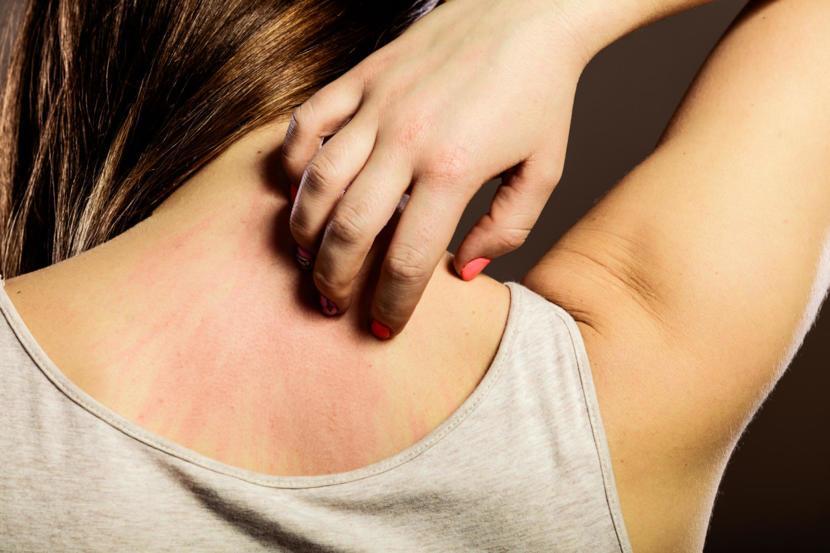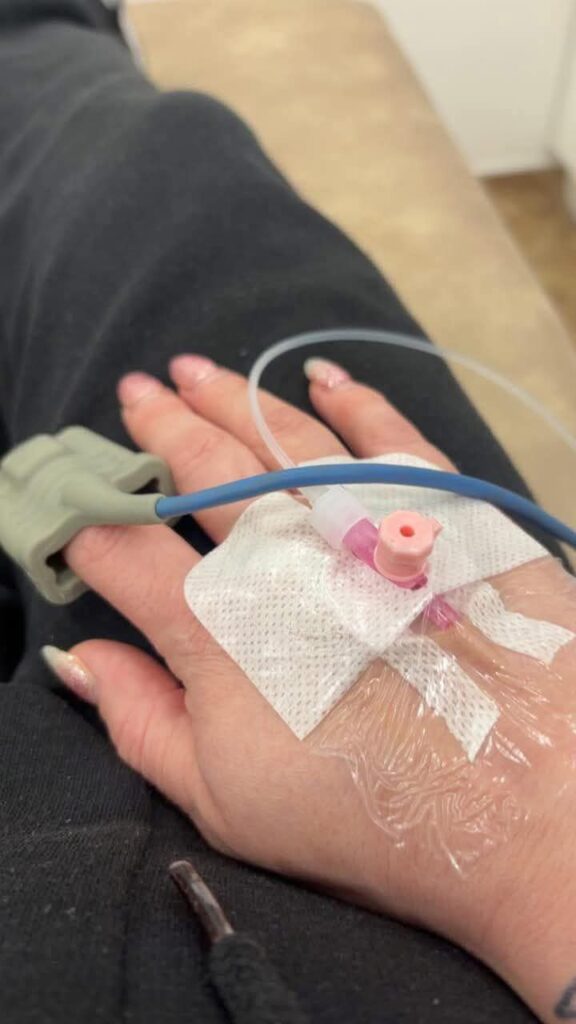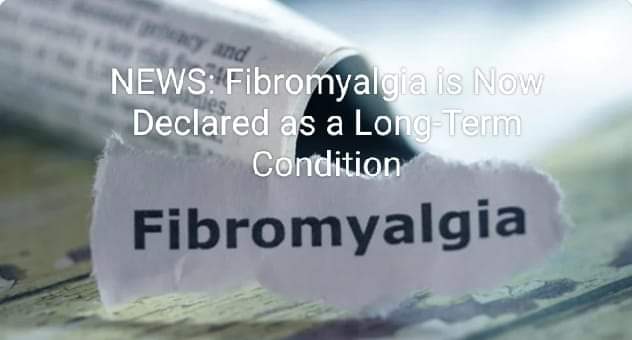- 6 Remedies For Itchy Skin with Fibromyalgia
HEALTHY LIVING
Itchiness is a common symptom of fibromyalgia. Here are six remedies that can help.
Fibromyalgia symptoms are very similar to autoimmune conditions, and they vary from person to person. Fibromyalgia symptoms can include weakness, fatigue, constant muscle pain, and unexplained pain throughout your body. Another symptom, which might be uncommon, is pruritus or severe itchin

Everything You Need to Know About Fibromyalgia
Have a question aboutFibromyalgia?Ask a doctor now
The causes of fibromyalgia are not known, but it may be a genetic connection. Often fibromyalgia manifests itself after a medical, personal, or physical trauma. There is no distinct reason why you have severe itching with fibromyalgia, although one reason could be your nerves reacting to your fibromyalgia condition. Itching is maddening, and scratching will do nothing to help stop the itching. If you also suffer with allodynia or a pain type that causes a simple touch to hurt, scratching and itching will make the area scream with pain.
Itching could also be a side effect of mediation you are taking like Lyrica, Cymbalta, or Savella. Let your doctor know if you have side effect with any of these medications. You may need to change medications or adjust dosages.
Six Remedies for Fibromyalgia Itching
Those who have fibromyalgia can find a way to stop the itching. It may take trial and error to find the system that works for you but try some of these remedies:
- Capsaicin Cream. Capsaicin cream is a topical pain reliever that eliminates the ability of cells to feel pain messengers. When you start using capsaicin for the first time, go easy to make sure you have no side effects. Capsaicin is the compound found in red peppers that gives peppers their hot and spicy kick. Capsaicin affects the neurotransmitter that communicates pain signals to the brain.
- Oatmeal bath. Purchase plain and unflavored oatmeal at your grocery store. Make sure the oatmeal is fine – steel cut oats are great. Add a cup of oatmeal to lukewarm bath water and mix it in well. Limit your soaking time to 20 minutes and keep the water lukewarm. Water that is too hot dries out your skin and makes the itching worse. You can also purchase oatmeal bath products at the drugstores. Make sure the product is fragrance-free.
- Painkillers. Acetaminophen can be used to deal with itching from fibromyalgia. You can purchase these over the counter or ask for a prescription from your doctor. Take this medication as instructed.
- Ice cubes and ice packs. Place ice cubes or an ice pack on your skin to numb the itch. Ice can relieve some of the inflammation and also helps deaden the itching, so you do not feel it. It may help relieve extreme itching. Don’t be tempted to scratch the itch when ice is on your skin.
- Anti-anxiety medications. There are anti-anxiety medications used by those with fibromyalgia. Anti-anxiety medications won’t permanently stop the itching, but they may give you temporary relief from the stress that can exacerbate itching.
- Brain re-training. Retraining your brain is becoming popular when treating different conditions. Contact a therapist to learn the different techniques to help you with brain retraining. This technique might be the answer to your awful itching symptoms.
Complications of Scratching
Scratching at itchy skin can lead to cuts, possibly scars, and deep scratches. If deep scratches are left open, there is a possibility they might become infected. It is also possible that intense itching could cause you to feel anxious and depressed.
Persistent itchiness definitely makes it difficult to sleep. Lack of sleep makes fibromyalgia symptoms worse. If you are experience insomnia due to intense itching talk to your doctor for prescription medications that could help or sleep aids that also might help.
More about Fibromyalgia
Nerve stimulation causes your brain to change. The change involves abnormal increases in levels of certain chemicals in the brain that signal pain receptors called neurotransmitters. The brain’s pain receptors seem to develop a memory of your pain. These memories of pain keep coming back and everything becomes more sensitive. Your brain overreacts to pain signals.
Another symptom that can be very disturbing is cognitive difficulties or fibro fog. Brain fog impairs the ability to focus, pay attention and concentrate on mental tasks. Scientists still do not know what’s behind fibro fog – that fuzzy-headed feeling that keeps you from thinking clearly. However, there may be a link between exercise and thinking clearly. Often those who are more physically fit do better in attention and decision making.
Fibromyalgia sometimes co-exists with other conditions like irritable bowel syndrome, migraine and different types of headaches, interstitial cystitis or painful bladder syndrome, and temporomandibular joint disorders.
Diagnosis for fibromyalgia used to concern 18 specific tender points on your body. Doctors pressed these points to see how many of them were painful. However current diagnosis doesn’t require tender point exam. Fibromyalgia diagnosis can be determined if you have had widespread pain for more than three months with no underlying medical condition that causes the pain.
You may also be subjected to blood tests that rule out other conditions. Your doctor may order a complete blood count, cyclic citrullinated peptide test, rheumatoid factor, erythrocyte sedimentation rate, and thyroid function tests. Sounds very technical, but these blood tests will help your doctor come to a fibromyalgia diagnosis.
Treatment for fibromyalgia includes medication and self-care. Emphasis is on minimizing symptoms and improving your general health. No one treatment works for every symptom, but you can take medications, revise your lifestyle, and try alternative medical programs.
Alternative medical programs for pain and stress management have been practiced for thousands of years. Their use has become more popular in current years especially with those who have fibromyalgia. Some of these treatments safely relieve stress and reduce pain and itching, and some are rapidly gaining acceptance in mainstream medicine. Try these alternative treatments:
- Acupuncture. Acupuncture is a Chinese medical system based on restoring your normal balance of life forces. Very fine needles are inserted through the skin in various depths. According to Western theories of acupuncture, inserted needles cause changes in blood flow and levels of neurotransmitters in the brain. Studies show that acupuncture can release fibromyalgia symptoms.
- Use massage therapy. Massage is one of the oldest procedures of health care in practice. It involves using different manipulative techniques to move your muscles and tissues. Massage reduces your heart rates, relaxes your muscles, improves your range of motion in joints and addresses production of your body’s natural painkillers. Massage is excellent for relieving stress and anxiety.
- Yoga and tai chi combines meditation, slows movements, elicits relaxation through deep breathing. Yoga and tai chi can help you control your fibromyalgia symptoms.
Most medical practitioners definitely misunderstand fibromyalgia. There is no cure, but many of the symptoms can be managed, including pruritus or severe itching. Scientists believe that fibromyalgia amplifies painful and itchy sensations by affecting the way your brain processes pain and itching signals. Use several ways to relieve itching that are listed and if these don’t help, contact your doctor for more suggestions.
reference>https://www.findatopdoc.com/Healthy-Living/itchy-skin-remedies-for-fibromyalgia



